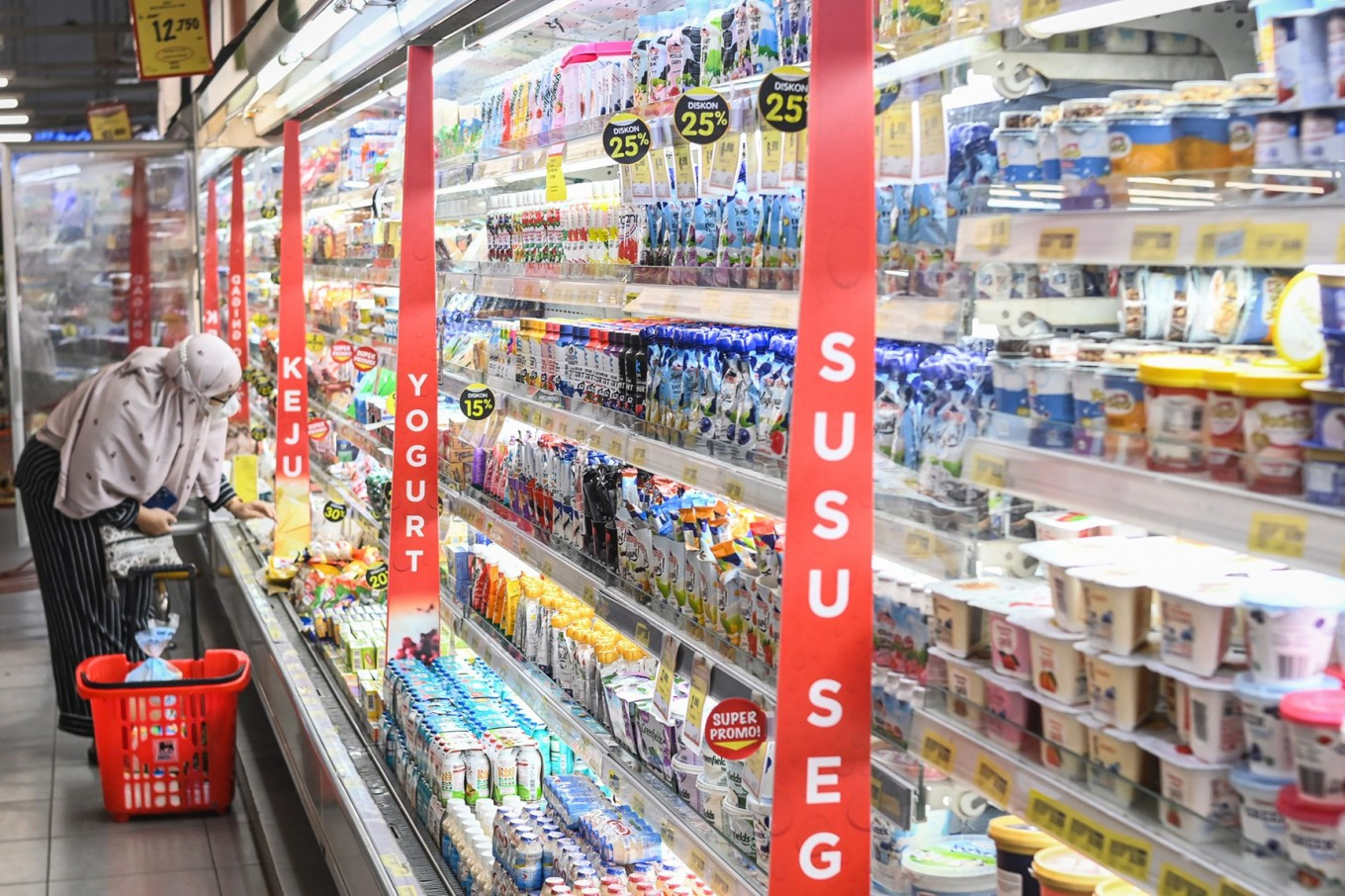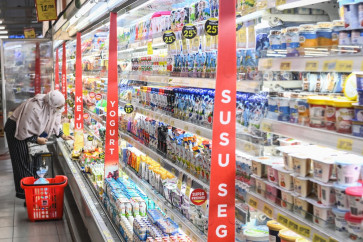Popular Reads
Top Results
Can't find what you're looking for?
View all search resultsPopular Reads
Top Results
Can't find what you're looking for?
View all search resultsAnalysis: Govt rolls out stimulus package to bolster consumption
Change text size
Gift Premium Articles
to Anyone
T
he Prabowo Subianto administration on May 23, 2025, launched a stimulus package aimed at sustaining household consumption and maintaining economic growth momentum amid rising global uncertainties. The package consists of five short-term measures set to be implemented from June to July 2025—one fewer than initially planned after the government scrapped a proposed electricity price discount. While the consumer-focused stimulus was introduced amid ongoing fiscal tightening, it was deemed necessary following a slowdown in household consumption and overall economic growth in the first quarter of 2025.
The first measure is a Rp940 billion (US$57.82 million) transportation subsidy drawn from the state budget, which includes a 30 percent discount on train fares, a 6 percent value-added tax (VAT) reduction for airline tickets, and a 50 percent discount on sea transport fares. The second measure encourages toll road operators to provide a 20 percent toll fee discount. The third is a Rp11.93 trillion expansion in social assistance, covering 10 kilograms of rice and Rp200,000 in monthly cash transfers for 18.3 million poor and vulnerable households.
The fourth measure is a Rp10.72 trillion wage subsidy targeting 17.3 million workers earning up to Rp3.5 million per month or earning the local minimum wage, as well as 565,000 non-permanent contract teachers under the Primary and Secondary Education Ministry, as well as Religious Affairs Ministry. Each eligible worker or teacher will receive Rp300,000 in wage subsidies per month. Lastly, a Rp850 billion allocation—sourced outside the state budget—will extend a 50 percent discount on workplace accident insurance for 2.7 million workers in labor-intensive industries.
According to Statistics Indonesia (BPS), household consumption grew 4.89 percent year-on-year (yoy) in Q1 2025, contributing 2.61 percentage points to the country's GDP, which expanded by 4.87 percent yoy to Rp5.67 quadrillion at current prices, or Rp3.26 quadrillion at constant prices. The consumption growth figure marked a decline from 4.91 percent yoy in Q1 2024 and 4.98 percent in Q4 2024. BPS noted that consumption tends to be lower in the first quarter, with Q1 2024 being an outlier due to the election season and Ramadan.
Finance Minister Sri Mulyani Indrawati clarified that the proposed electricity price discount was cancelled because its budgeting process could not be completed in time for the June–July implementation period. As compensation, the wage subsidy was doubled from the initially planned Rp150,000 per recipient. The subsidy is currently funded through the state budget as a temporary measure but is expected to be financed by the national social security agency, BPJS Ketenagakerjaan. Additionally, the Energy and Mineral Resources Ministry reportedly objected to the electricity subsidy plan, citing a lack of prior consultation.
The Indonesian Young Entrepreneurs Association (HIPMI) criticized the package for not including targeted incentives for the middle class, which it argues plays a crucial role in driving household consumption growth. HIPMI emphasized that stimulating middle-income consumption is essential not just for short-term growth, but for supporting entrepreneurship, employment, and long-term productivity. It proposed a complementary stimulus plan including income tax breaks for middle-class earners, first-home mortgage subsidies, public transportation and electric vehicle incentives, vocational training vouchers, school-related financial assistance, and expanded micro and household business loan facilities.
Despite the limited scope of middle-class incentives, the government’s focus on social assistance and wage subsidies is expected to help boost purchasing power among lower-income households. Meanwhile, discounts on train, airline, and sea fares—as well as reduced toll road fees—are expected to ease inflationary pressures from transportation costs. However, the lack of internal coordination that led to the cancellation of the electricity discount raises concerns about the overall effectiveness of the stimulus package.



















